On January 28th, my family got some news that changed our lives forever. After noticing some signs that were concerning (more about that in this post), my 4-year-old son was sent to the ER with a blood glucose level of 510. That’s very high, in case you were wondering. Shortly after we were admitted to the hospital, it was confirmed that my son has Type 1 Diabetes (T1D).
Initial feelings. I’m torn.
On one hand, I’m relieved. T1D is a totally manageable and livable diagnosis. T1D accounts for roughly 10% of the 420 million global cases of diabetes (beyondtype1.org). People are being diagnosed every day with T1D. It’s fairly common, and totally treatable. But on the other hand, my son will have to deal with needle pokes, finger pricks, high blood sugar, low blood sugar and carb counting for the rest of his life. A chronic illness is a chronic illness. Our lifestyle has to completely change to accommodate this disease, and no mother wants her child to have to suffer, even the slightest bit.
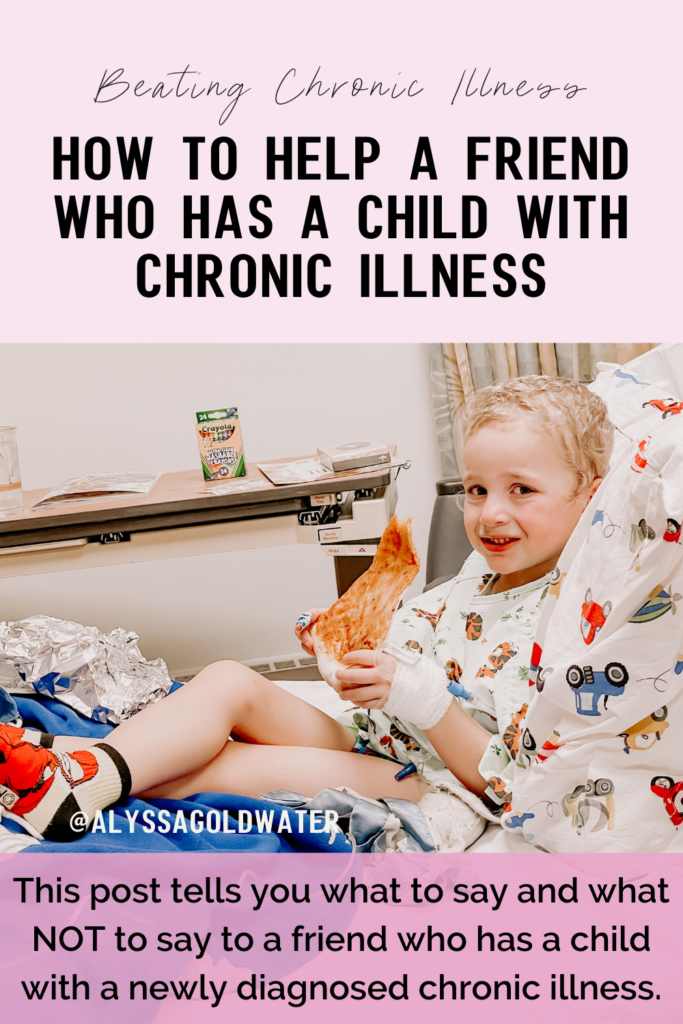
How can you help a friend who has a child with a chronic illness?
As soon as friends and family members found out that we were in the hospital, the calls started rolling in. Of course everyone’s first messages are: 1) Is everything okay? and 2) What’s wrong? And everyone’s caring (and somewhat yenta-ish) messages are definitely appreciated. But as a mom of a child with a chronic illness, let me help guide you so that you can truly be the friend that “that mom” needs.
Instead of, “What’s going on with ____?”, say “I just want you to know that I’m thinking about you and ____. Sending you a big hug. Please don’t feel the need to respond.”
That last line is key. Sending a simple message every few days, with no pressure for the mom to respond, is perfect. You let your friend know that you’re thinking about her, you’re not prying for information, and most importantly, there’s no pressure for the friend to feel bad about not having the time or energy to respond. When your friend can respond, she will, and she’ll be so grateful that you’ve “been there” the entire time.
You can also take it a step further. Offering some sort of service or act of kindness is so helpful. But it can be hard for the person struggling to make any sort of decisions.
So instead of saying, “What can I do for you?”, say “I’m going to _______ [insert: make you dinner on Monday, bring you over some groceries, send food to the hospital, etc.]”
Being specific is amazing because it doesn’t leave room for the person to have to make any sort of decisions. Although, as the recipient, it can be hard at first to accept help, it also just takes a task they likely have to do on their own, off their case. I would say that having friends make dinners is probably the number one thing that has helped me most during this time. Depending on the situation, you could even set up a Meal Train for them to make sure they’re always covered in this area.
Ask what you can do for the other siblings in the family.
One of my biggest stressors in the hospital was worrying about what Miri (my oldest) was going to do. Where would she go after school? How would we get her there? Having friends reach out and offer to take Miri for a playdate was so helpful.
I also have found that Miri has been feeling jealous of the attention that Azi has been getting. So if you’re bringing something for the kid with chronic illness, at least bring something small for the sibling. Not only does it make the sibling happy, but it alleviates the stress that the parent feels about their other child feeling left out, jealous or acting out because of it.
“When you’re ready, I can put you in touch with (Chai Lifeline, Mary Berry who’s son has the same thing as ____.”
This is super helpful. It’s not overwhelming because you’re not texting your friend a million phone numbers. You’re saying, when and if you’re ready, I have resources that I think might help you. I even had friends say, “I’m looking up numbers, but I’m not going to even text you about them until next week.” Then they follow up, and continue to hold onto the numbers for me until I’m ready. Side note: I’m still not ready, and that’s okay.
Those are really the “big things” you can say/do to help in a time of need. I think that runs pretty generic to a lot of situations when someone might need more help.
Here are some things you should absolutely NOT say:
“At least you diagnosed it!”
No $h*t sherlock. But that doesn’t make what we’re going through any easier.
“At least it’s totally treatable!”
Again, you are completely undermining my feelings about my child having an illness, treatable or not.
“He’ll be totally fine! Don’t worry!”
I repeat, nobody who just finds out that their child has any sort of illness wants someone to assure them they’ll be fine. Every parent logically knows this, but again, that doesn’t make the present or the challenges that will inevitably come up any easier.
“Thank G-d it’s just T1 Diabetes. It could be so much worse!”
Yes, you’re correct. And I am grateful every day that if my child had to be faced with a challenge it is at least one that we can totally deal with, with the help of medicine and doctors. But again, when you say this to someone, you’re equating what your friend is going through with a kid that has a cold or a stomach bug. It’s like saying, “At least it’s not COVID!” Like, it still sucks. Let your friend sit with their pain, and sit there with them. They’ll come out when they’re ready.
“But he’s too young to have health issues.”
“So he got it from your husband?”
Yes, my husband also has T1D. No, T1D is NOT genetic (less than 5%). You cannot catch it. It’s something you’re born with. For more info on T1D and the differences between T1D and T2D, read this post or check out Beyond Type 1.
“So, he had too much sugar?” or “Does he drink a lot of juice?”
Again, in regards to T1D, sugar and juice intake has LITERALLY NOTHING to do with it. You are born with a wonky pancreas. In fact, my kids NEVER have juice BECAUSE I am so vigilant about diabetes. Man plans, G-d laughs. Saying this points a finger at the parent, and this is no one’s “fault”.
“My grandma has T1D, and she had to get her toes amputated.”
Okay, sis. First of all, your grandma is not the same as my 4-year-old son. Second, every mother hears allllll of the what-ifs when her child is diagnosed. The medical team will definitely let her know. YOU do not need to be the one to tell me the horror stories. Don’t be stupid. And, no, I can’t make this stuff up.
“If his blood sugar goes too low, he can go into a coma.”
GIRLFRIEND. Every mother of a T1D knows exactly what horrors can happen if her child’s blood sugar goes too low. Why do you feel it necessary to bring that stuff up?! I’ll be real for a second. The first thing that comes to my mind is wondering if you’re socially off. I’m going to go with that. Because that is one of the dumbest things you can say. Yeah….
“Have you tried this or that (recipe, food, medication, wholistic thing).”
Just don’t. Your friend is doing exactly what her doctor recommends. If she wants your advice, she’ll ask for it.
Do you have anything that someone particularly did or didn’t do that was helpful or unhelpful to you at a time like this? Please share in the comments! Sending strength to all my chronic illness mamas. We got this!
Please feel free to share the following graphics if you feel they can help someone else:










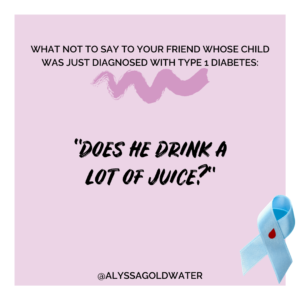
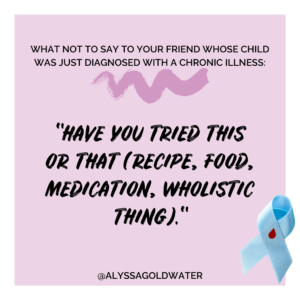

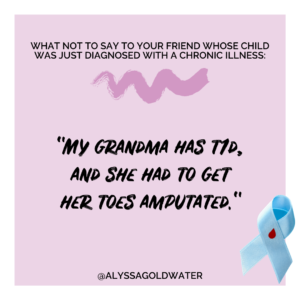

Be smart with your words, be mindful and be sensitive. That’s all! xo
For more thoughts and feelings your newly diagnosed friend may be feeling, check out this post.

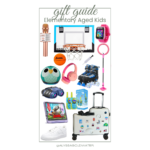





Leave a Reply